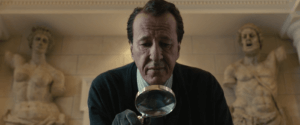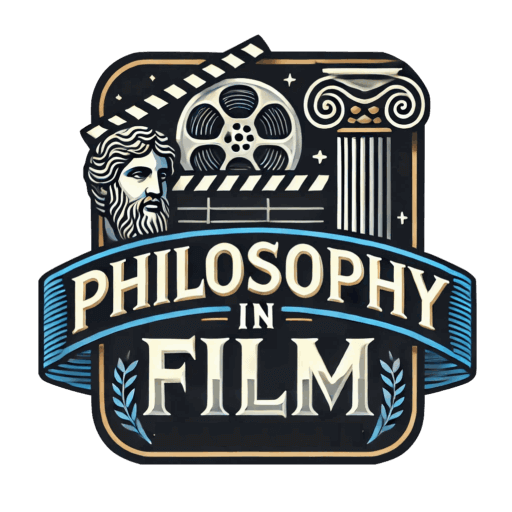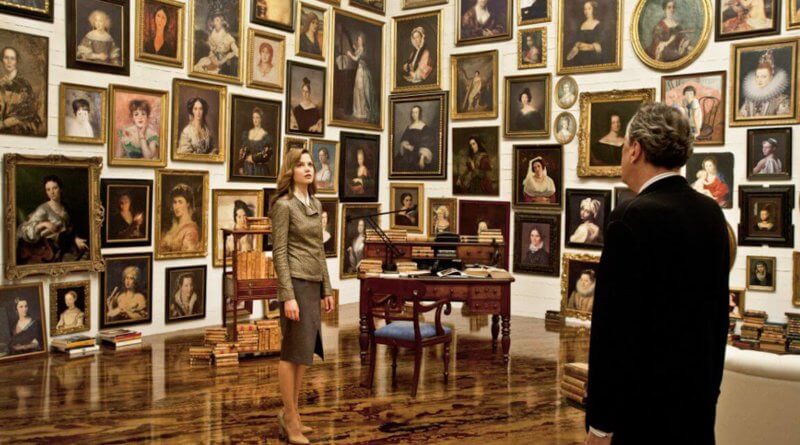Review: The Best Offer (La Migliore Offerta, 2013) ★★
Our expectations play a huge part in how we evaluate a film. This is somewhat unfair to the filmmaker, who has little control over our preconceived notions of what a film aught to be. Having said that, most people know how to temper their expectations to a certain degree, and just about everyone knows how to suspend their disbelief for the sake of being engrossed in a story. In the case of Giuseppe Tornatore’s The Best Offer, several factors led me to believe that my already high expectations would be exceeded, but sadly it fell far short of the mark.
First and foremost, it must be said that Tornatore’s 1988 masterpiece Cinema Paradiso is one of my favorite films of all time, as it captures a love and all-consuming passion for the cinema that few other films have achieved. I didn’t expect The Best Offer to be of the same caliber, but I expected it to be stylistically similar at the very least. Ignoring the talent of the filmmaker, the first thirty minutes or so are actually pretty good. They set up an intriguing story, in beautiful European locales, with a story that puts emphasis on the beauty of art and the value, both monetary and otherwise, that society puts into classical paintings and sculptures. Unfortunately, once the “real” story begins, you come to realise that this is just not a very good film, let alone a masterpiece.
The film centers on Virgil Oldman (Geoffrey Rush), an enigmatic and mildly neurotic art auctioneer, who has established a reputation as the best in the business. He is a germaphobe who wears gloves almost all the time, refuses to own a cell phone, and insists on conducting his appraisals and auctions with the highest degree of professionalism, except when it comes to acquiring special pieces for himself, which he manages to do with the help of his friend, Billy Whistler (Donald Sutherland). One day, a mysterious young woman named Claire (Sylvia Hoeks) hires Virgil to appraise her deceased parents’ collection of antiques. He is apprehensive to do business with her, as she suffers from agoraphobia, and is therefore unable to meet him in person. However, her reclusiveness intrigues Virgil, and through their interactions, he comes to form a bond with Claire, as he can relate to her distaste for the outside world. While working with her, Virgil enlists the expertise of a young craftsman, Robert (Jim Sturgess), to help him reassemble various mechanical antiquities, and also offer him advice regarding his growing feelings for Claire.

While the beginning of The Best Offer is promising, the film shows its weaknesses when Claire’s character is introduced, and completely falls apart once Virgil becomes romantically interested in her. This is to say nothing of the many side-narratives, which are all very poorly developed. Perhaps the most interesting plot-thread is the ongoing scam between Virgil and Billy, but it is hardly even relevant in the larger story, and not given nearly enough attention from the filmmakers. Regarding the least interesting thread, which is Virgil’s friendship with Robert, the filmmakers abandon all subtlety in order to move the plot along. Robert’s character feels shallow and out of place, acting like the best friend in a trite romantic comedy, rather than an ancillary part of a serious drama film. His character takes on greater significance in the final act, but by that point the film has failed in so many different ways that it doesn’t much matter.
One aspect of The Best Offer that is particularly cringeworthy is the rather lame and misinformed approach that it takes to mental illness. Claire, rather than acting like someone who genuinely suffers from a debilitating illness, acts like a moody teenager, easily swayed by her emotions and attraction to Virgil. While this is indirectly explained by the end of the film, it doesn’t make up for the uneasiness one feels when watching an actor completely misrepresent mental illness onscreen.
Though the cinematography is quite well-done and easy on the eyes, it cannot make up for the poor script. It is not just that The Best Offer is a bland film, which it is, or that it has too many plot threads for its own good, which it does, but that it is greatly undone by the amateurish characterization. Virgil is defined in simple terms, as is Claire and essentially every other person in the film. Rather than the characters defining themselves through their words and actions, the plot and stylistic choices define them for us, spoon-feeding the audience with the low-brow “nuances” of the story world. Everyone and everything in the film is two-dimensional, and there is nothing in them that would be too complex for a child to understand. Ultimately, The Best Offer is a poor film with high aspirations; it strives in its tone to be intellectual, and of equal value to the great works of art that Virgil deals in, but in the end, it is just an implausible and ultimately unsuccessful attempt to blend mainstream cinema with high-art.
Rating: ★★ out of 5
The Best Offer is available to purchase via Amazon here.

